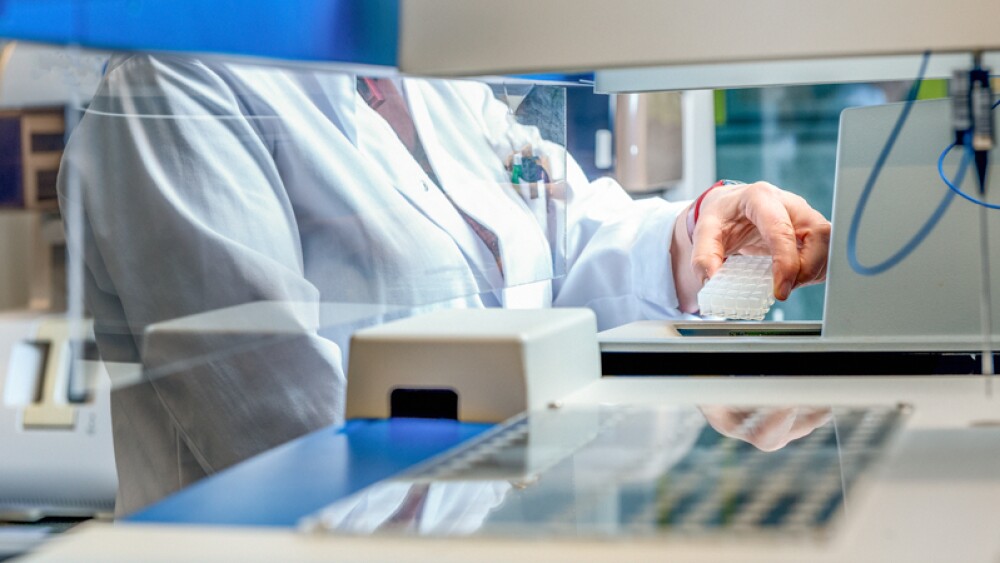January 26, 2017
By Mark Terry, BioSpace.com Breaking News Staff
While the biggest news for Johnson & Johnson today is probably its $30 billion acquisition of Actelion , a tidbit revealed in its fourth-quarter earnings report should get investors’ attention as well. Todd Campbell, writing for The Motley Fool, takes a look at J&J’s Darzalex.
Darzalex (daratumumab) was approved by the U.S. Food and Drug Administration (FDA) in November 2016 in combination with lenalidomide and dexamethasone, or bortezomib and dexamethasone, to treat patients with multiple myeloma who have received at least one prior therapy. A year earlier it was approved in patients who had received at least three earlier treatments.
In that regard, it was a drug for people running out of treatment options. In 2016, the first full year on the market, Darzalex sold $572 million. The November 2016 expansion will likely allow it to bring in even more revenue this year. Some analysts project potential sales to exceed $1 billion.
According to the National Cancer Institute, there are more than 30,000 new cases of myeloma in the U.S. every year, and the five-year survival rate is only 48.5 percent. The leader in treatment is Celgene ’s Revlimid. It works very well and has a sky-high price tag, about $17,773 for 28 capsules, which is projected to bring in more than $8 billion this year.
Campbell writes, “Darzalex isn’t going to displace Revlimid’s dominance in the indication anytime soon, but it is getting increasingly used in patients that have seen their disease return following Revlimid, and a recent label expansion means that it could see sales grow from being used in combination with it.”
In the fourth quarter of last year, probably boosted by its new approval, it brought in $200 million, which gives the drug an $800 million annualized sales run rate. As Campbell notes, if the company could just boost sales by $50 million in this quarter, it’ll be on track to hit $1 billion.
“Darzalex’s fast growth,” Campbell writes, “is especially important to the company (and investors) because Johnson & Johnson faces growth headwinds this year. The company’s top-selling drug, Remicade, began competing against biosimilars in the U.S. for the first time in November, and that competition could weigh down Remicade sales, which totaled $1.17 billion in Q4, down 1.7 percent year over year.”
Then again, J&J just dropped $30 billion in Actelion, which allows its expansion into the rare disease market. As part of that deal, J&J picks up several drugs for pulmonary arterial hypertension (PAH), including Tracleer, Opsumit and Uptravi, some of which are believed will hit blockbuster status over the next couple years.
In addition, as part of the deal, Actelion’s research-and-development area is being spun off into an independent, standalone company. J&J will hold a 16 percent stake in the new company and have rights to another 16 percent of its equity through a convertible note. It will also have an option on ACT-132577, a drug Actelion—and now the new company—is developing for resistant hypertension. It is currently in Phase II clinical development.
J&J is paying $30 billion in cash, using funds that were locked up in Europe. J&J holds approximately $42 billion in overseas cash. Last year the company indicating that repatriating the cash to the U.S. would likely have tax implications. U.S. President Trump has indicated he was going to have a plan that would allow U.S. companies to bring home offshore cash, despite few if any details or a time table.
Earlier this week, J&J announced its fourth-quarter profits just barely surpassed expectations. Its 2017 earnings forecast were also not what was expected.





